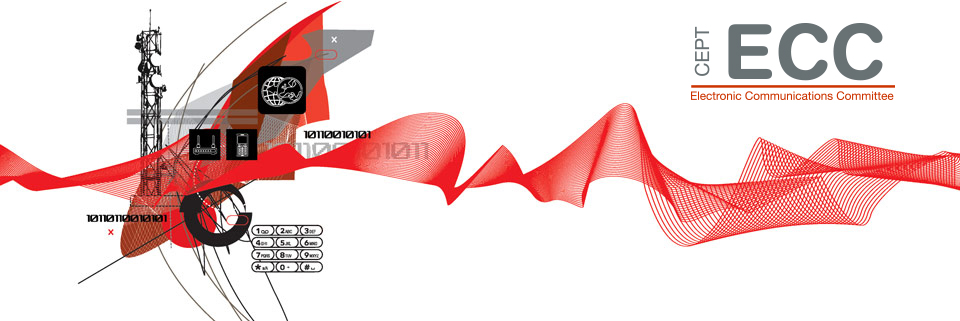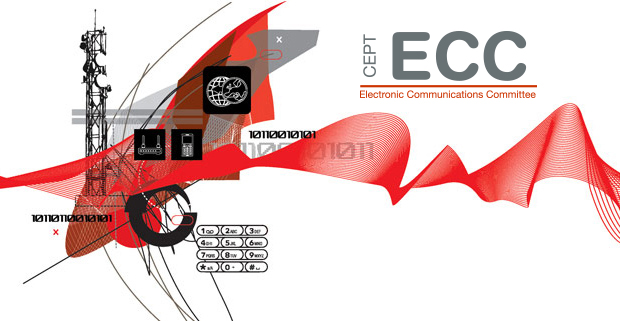


ECC Newsletter May 2023
PSAP Directory saves lives
Since its introduction in 2018, the PSAP Directory has been connecting emergency services across Europe. A webinar, hosted by the European Communications Office in March, heard about real-life examples of the directory in action.
When a truck driver, on a journey through France, started to display symptoms of a stroke, he called his employers in Lithuania to tell them there was something wrong. The man could not speak very clearly. His concerned employers dialled 112 in Lithuania and told them of the emergency. The call-taker in Lithuania was able to call a PSAP in France and direct them quickly to the driver.
There was a time when such a cross-border communication would have been lengthy to resolve, because when a person in country A is informed of an incident in country B, it is not possible for them to access emergency services in country B by dialling an emergency short number (e.g. 112). However, thanks to the introduction of a Public Safety Answering Point (PSAP) Directory in 2018, there is a speedy solution. The PSAP Directory enables participating European PSAPs to communicate with each other when they are dealing with an emergency incident with a cross-border dimension.
The half-day webinar organised by the ECO in March was well attended and packed with statistics, case studies on the use of the PSAP Directory and information on how European PSAPs can join the directory. Participants heard what has been happening with the PSAP Directory in France, Lithuania, Sweden and Romania as well as numerous examples of the directory in action.
The PSAP Directory, which is hosted by the ECO, is a confidential directory containing contact information for participating PSAPs across Europe. The idea of the directory is that it is used as a back-office support tool for PSAPs to contact each other when needed. There is no cost associated with using the directory – it is free to use. Since its introduction, the number of PSAPs using the directory has been growing. As of March 2023, 27 PSAPs from 22 European countries use the directory.
Attendees were told of the harrowing, real-life case of a Lithuanian woman threatened and raped in Sweden who managed to send a text message to her sister back home. Her sister called 112 in Lithuania who in turn contacted the Swedish PSAP using the directory. Police and an ambulance were sent to the location of the woman.
The webinar was told of an incident where a Romanian woman living in another country called her sister in distress. The woman was expressing suicidal ideation. Her sister in Romania called 112 to report the emergency. The relevant call-takers took immediate action and used the PSAP Directory to send help.
Truck drivers, in particular, often call their employers or family if they run into trouble. When a Czech lorry driver experienced symptoms of a heart attack while on a trip to the UK, he called home. Eventually, the PSAP in Czechia used the directory to create a three-way call with the driver and the PSAP in the UK. The case resulted in a positive outcome.
In another example a truck driver having a stroke was so confused he did not know what country he was in, nor did he remember his age, and was unable to call 112. He did manage to contact his wife in Romania who in turn called the emergency services there. Thanks to the use of the PSAP directory, the man was saved.
The PSAP directory can be particularly useful in the case of traffic accidents involving tourists or migrants. Sometimes, when people are travelling near borders, the phone call can connect to a mobile station in the wrong country.
The webinar heard calls for more PSAPs to sign up to the directory. The aim is to get as many PSAPs in the 46 CEPT member countries as possible to participate in the directory.
Some countries have several PSAPs. While one PSAP acts as a point of reference in each country, attendees at the webinar encouraged all PSAPs within their countries to contact that point of reference to share the information contained in the directory.
The seminar also heard some interesting statistics on the use of the directory. In Lithuania, for example, the PSAP is used between 30 to 40 times each month. In Sweden, last year, 21 calls were made from Swedish PSAPs to international ones.
As Elizabeth Greenberg, Chair of CEPT/ECC Working Group Numbering and Networks, said in her closing remarks, the statistics and case studies “really brought home the value of participating in the PSAP Directory”.
May 2023 Articles
Newsletter Archive
-
January Newsletter
-
June Newsletter
-
October Newsletter
-
February Newsletter
-
February WRC Special
-
June Newsletter
-
December Newsletter
-
April Newsletter
-
August UHF Special
-
October Newsletter
-
April Newsletter
-
October Newsletter
-
January Newsletter
-
July Newsletter
-
November Newsletter
-
December Newsletter
-
April Newsletter
-
July Newsletter
-
October Newsletter
-
December Newsletter
-
May Newsletter
-
September Newsletter
-
December Newsletter
-
May Newsletter
-
August Newsletter
-
December Newsletter
-
May Newsletter
-
August Newsletter
-
December Newsletter
-
May Newsletter
-
August Newsletter
-
December Newsletter
-
May Newsletter
-
September Newsletter
-
December Newsletter
-
May Newsletter
-
August Newsletter
-
December Newsletter
